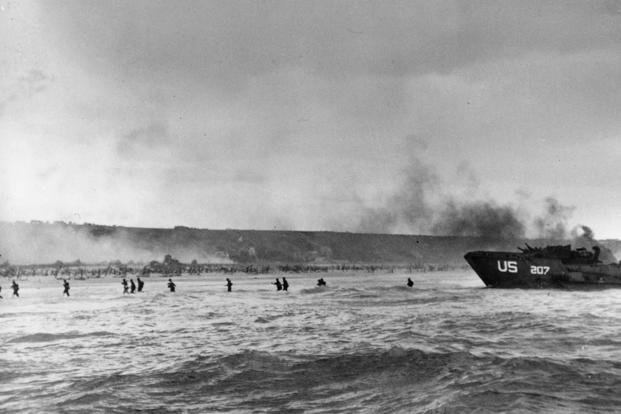Believe it or not, the Germans were not surprised that the Allies were ready to invade Fortress Europe as a means of bringing World War II to an end. As a matter of fact, in much of Europe, the Nazis were ready for whatever the Allied troops were going to throw their way. The Nazis knew about the military build-up in England, and even the lowest-ranking Wehrmacht trooper knew the invasion would come at some point.
Luckily, the Allied powers still had a few tricks up their sleeves.
1. They Didn't Think Normandy Would Be the Target.

The ideal point of an invasion of Europe from England, Nazi planners determined, would come at Calais. There were many reasons for this, but the simplest explanation is that Calais is the closest landing point from England. The English Channel is a tough, choppy sea with inclement weather. A more distant location could put a substantial invasion force at risk, so the troops manning the Atlantic Wall were reasonably sure Normandy was safe.
2. No One Expected It in June 1944.

Most experienced German troops and planners believed the Allies would not open a second invasion of Europe from the West until the Invasion of Italy was complete. Most thought another invasion of Allied forces would come only after the Italian Campaign reached the Alps or even crossed over them.
This, coupled with the fact they thought the landings would come at Calais meant the Germans manning defenses at Normandy were not the best troops for the job. Those troops were hundreds of miles away.
3. The Advance Was Much Faster than Expected.

German troops marveled at the speed with which American, British and Canadian forces moved their men and materiel, not only in crossing the English Channel on D-Day and the days after, but in the weeks after June 6. The formation of a firm beachhead and the rapid advance through the French countryside astonished the Germans, who had made the same lightning advance across the territory just a few years prior.
4. How Much the Luftwaffe and Kriegsmarine Failed Them

During the D-Day landings, the presence of the German Air Force or Navy was minimal where it existed at all. The Wehrmacht was the only real resistance to the Allied landings. Were it not for the Channel's infamous choppiness and bad weather, the landings would have made it across the water entirely unabated. With no air cover or protection from the water, the army was essentially left out to dry.
5. The Coordination of the Maquis
The Germans largely despised the resistance movements in France and other occupied countries and looked down on them with disdain. In practice, however, the close coordination between French resistance cells and the Allied command created a situation where German troops, transports and heavy weapons that might have thrown the Allies back into the English Channel were instead tied up and slowed down for hours, leaving only the defenses sitting on the Atlantic Wall to try to stem the tide.
More posts from We Are the Mighty:
How 150 British Paratroopers seized a fortified artillery battery on D-Day
The Nazis had a nuclear reactor in World War II
WWII veteran returns to France for first time since D-Day
We Are The Mighty (WATM) celebrates service with stories that inspire. WATM is made in Hollywood by veterans. It's military life presented like never before. Check it out at We Are the Mighty.
Keep Up with the Ins and Outs of Military Life
For the latest military news and tips on military family benefits and more, subscribe to Military.com and have the information you need delivered directly to your inbox.















